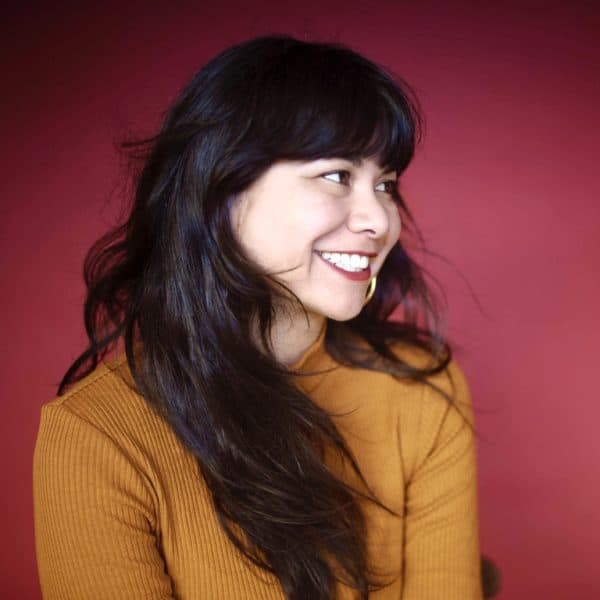Advertisement
Compton's Black Cowboys Ride To Reclaim Their Legacy
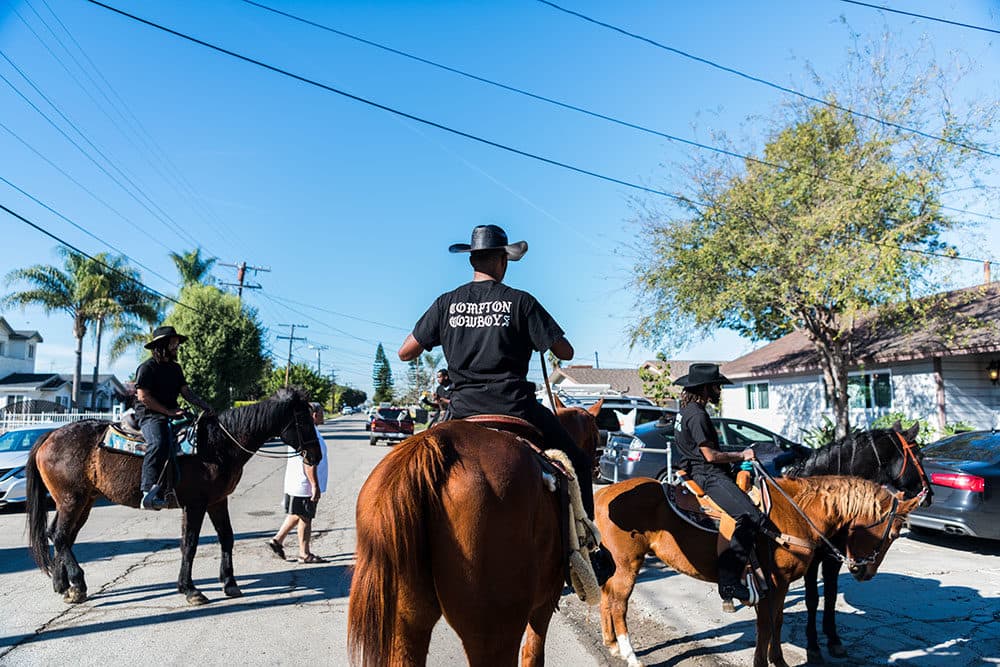
For those who have never been to South Central Los Angeles, a mention of the city of Compton might bring to mind the sounds of gangsta rap.
But for author and journalist Walter Thompson-Hernández, there’s something else that comes straight out of Compton: black cowboys. It’s a city where the strong bonds between black men are built through the diligent care of horses.
In his new book, "The Compton Cowboys: The New Generation of Cowboys in America's Urban Heartland," Thompson-Hernández chronicles the lives of 10 friends continuing the legacy of the original Compton Cowboys who for more than 30 years were a mainstay in the city. These cowboys also made their life's work teaching young kids in South Central LA about the possibilities and power of healing through horsemanship.
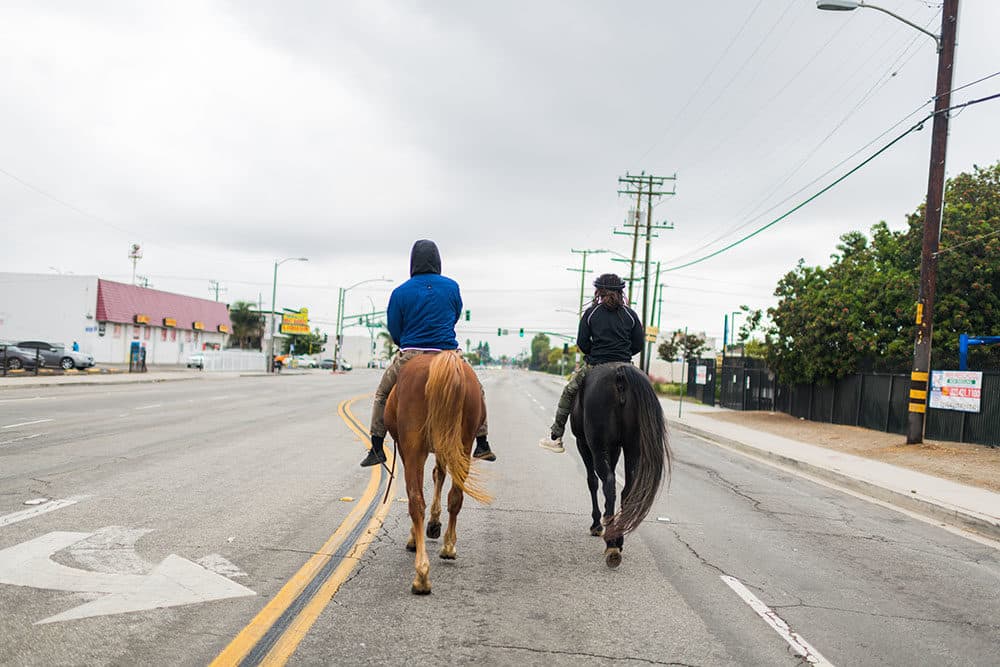
Thompson-Hernández grew up about 10 minutes from the city, and he says black cowboys were like “local superstars.”
“Everyone stops them for photos,” he says. “People honk at them like, 'Hey, black cowboys! You guys looking great. You guys are doing great.’ ”
He says he still remembers the first time he saw one of the Compton Cowboys on a horse.
He was about five or six in the backseat of his mom's car, and there was this cowboy riding bareback with a quiet confidence, his back long and strong, taking command of this urban landscape. Thompson-Hernández would roll down his window to hear the click-clacking of the horses hooves on the concrete.
And it was only as he got older that Thompson-Hernández realized these men on horses signified something even deeper: the endless possibilities of what he could do in this world as a black man.
“I'm the son of a black man and Mexican mother, and so for me, I grew up seeing Mexican cowboys, a lot like brown men on horses, was a normal thing,” he says. “But also seeing black men on horses, to me, was very important. That was a part of the story that wasn't told to me in school, and I felt like it was a part of history that I would have wanted my teachers to have told me about — and it never was.”
Advertisement
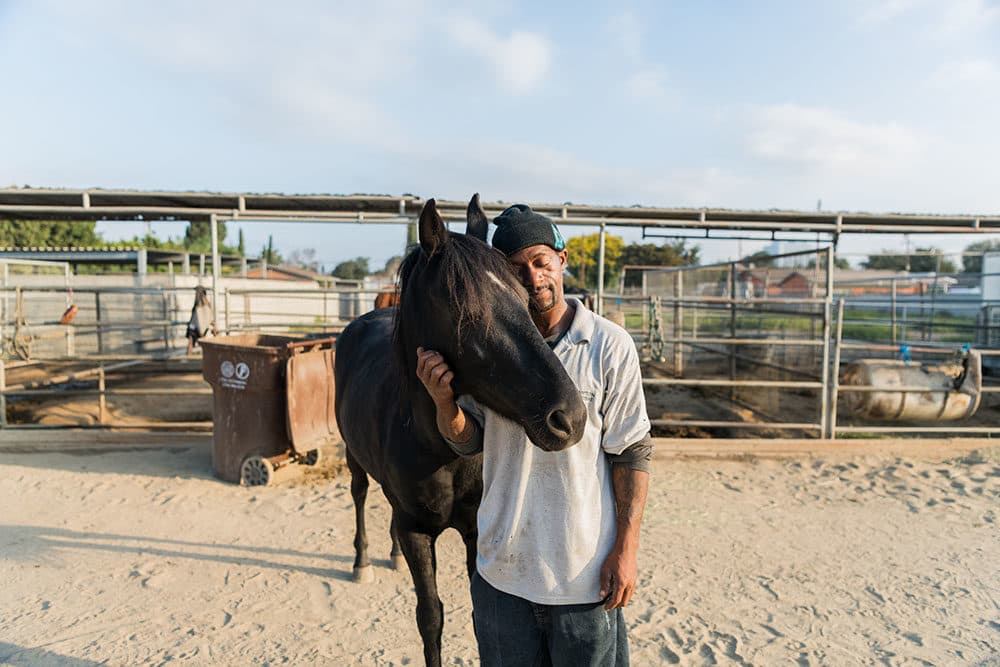
The lasting narrative is that cowboys are white, but in fact, one in four cowboys in the U.S. were black, Thompson-Hernández says. They also played a prominent role in the founding of the American West.
“At some point in history, people started to neglect the black cowboy story, which is what makes this story so important,” he says. “These are a bunch of friends who are trying to reassert the black cowboys back into the history books.”
Thirty-year-old Randy Hook is one of the new generation of Compton Cowboys. He and others hold weekly classes for kids, teaching them the ins and outs of caring for horses, at the Richland Farm in Compton.
The farm was originally owned by the city’s founder, G.D. Compton, in the 1800s. Stretching eight blocks, it’s tucked behind a row of unassuming ranch style houses in the middle of a neighborhood.
But it's a bona fide farm. There's a running track and about a dozen horses in the stables.
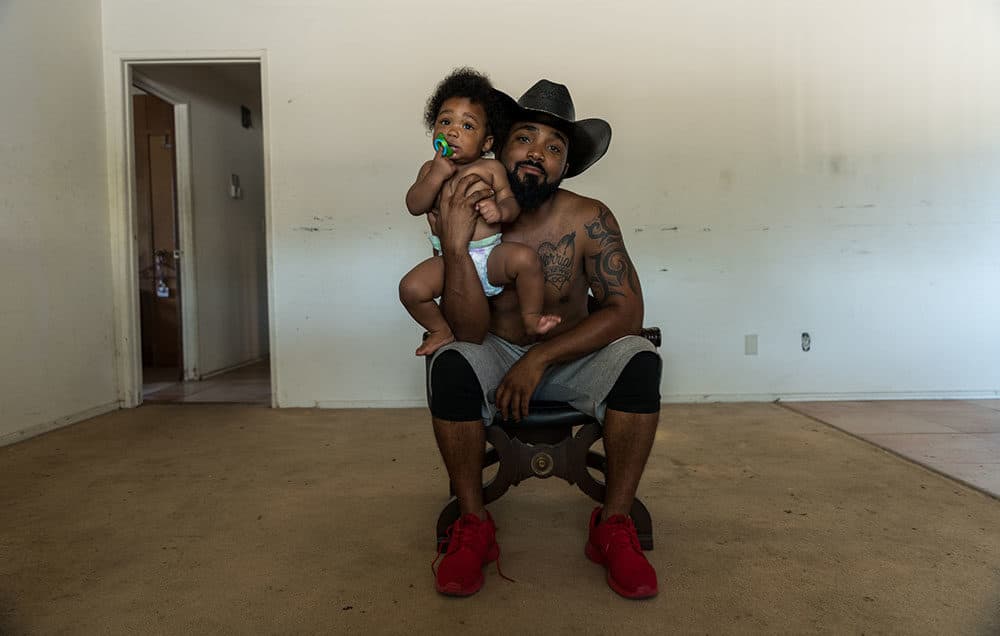
Hook practically grew up on the farm. Thirty years ago, Hook’s aunt created the Compton Jr. Posse Ranch Equestrian Program, and in 2017, Hook and nine other students took over the farm. He says some of his initial memories are the training of his first horse.
“His name was Look At Time,” Hook says. “We say it fast, but it's because he's so fast. Everytime we would do a run, people go, 'Whoa, look at the time.’ ”
Hook embodies some of the reasons why Thompson-Hernández wanted to tell the story of these modern Compton Cowboys. He spent a year writing the book and became so immersed in the story that he was “both a participant and observer,” he explains.
“What was so unique about this is that usually you have white people writing about communities of color, but like here I am, a person who identifies with the people who I'm writing about,” Thompson-Hernández says. “So I sort of had a very unique relationship to this story.”
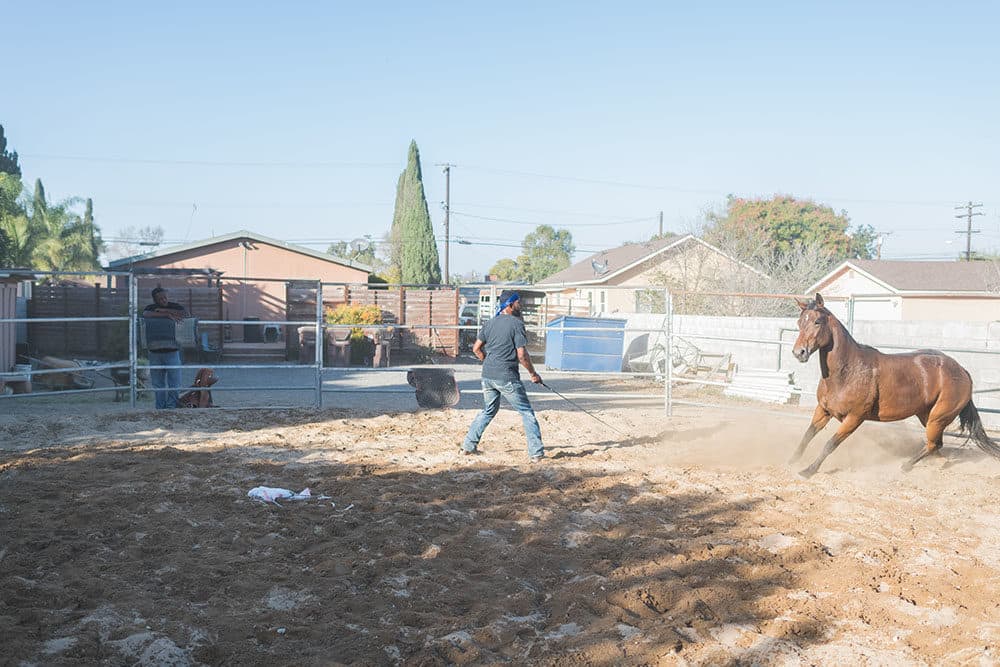
The main thing that stood out to him in reporting this story, Thompson-Hernández says, was how the children see the Compton Cowboys.
Richland Farm is set in the middle of a place that consistently has one of the highest crime rates in the nation. It's not easy to grow up in Compton, but caring for horses doesn't just make living here easier.
Hook says it gives kids some tools to survive, and he knows this firsthand growing up in Compton in the 1980s and ‘90s when the city was an epicenter for drugs and crime, and residents were confronting police brutality.
“I mean, anything you can name that will be wrong with the inner city community, like all happening at once, this is that era,” Hook says. “It's a lot of life threatening stuff out there. And having the horses back here allowed us, kept me, in the backyard as opposed to being in the front yard. And that's a life or death decision.”
Thompson-Hernández’s book lays bare some of those life or death decisions, as well as some of the magic that happens when kids get to interact with these animals.
Most of the horses are donated and some come from bad situations. Some suffer from post traumatic stress disorder, others are just wild. They've never been trained before coming to the ranch. Somewhere along the way, someone gave up on these horses and threw in the towel. It's a feeling some of these kids can relate to, Hook says.
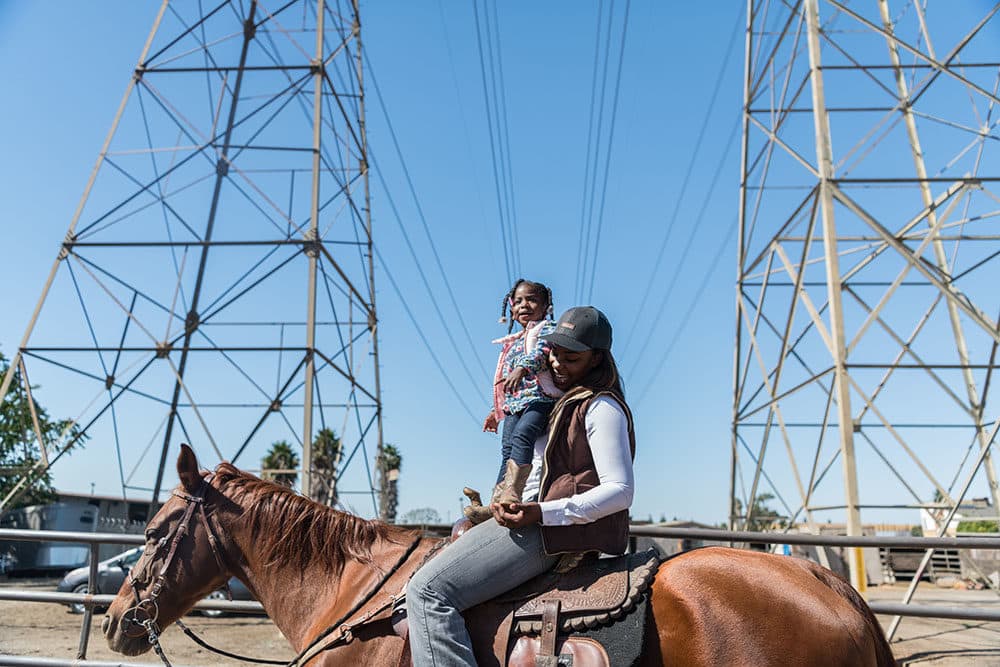
“It's a relatable emotion that a lot of the kids that come in connect with,” he says. “If you have a horse that's traumatized and really reserved or like tweaky, it's easy to say, hey, to a kid who is also like that, ‘You can understand you feel what she's feeling, right? You feel the same way sometimes, right?’ It's easy to connect those dots.”
Through the feeding, bathing and training of these horses, Hook is teaching kids about empathy.
“When you don't value a life, it doesn't register you the same to take a life,” he says. “But when you grow up learning to take care of a horse, take care of some plants, you develop a value for things that live and breathe and have to grow. So when you're out there on the streets, if you have the value for life, it's harder for you to harm a life.”
Hook says he is often overcome with emotion when he thinks about the kids he is trying to help.
“I cry a lot about it, and every time people ask me about it I start getting a little emotional, because that's what this whole thing is about,” he says. “One of my proudest moments in years has been watching one of my students get on that horse and do well. And how she looked, like she was so happy.”
But helping those kids is an expensive endeavor. The Compton Cowboys rely on donations to keep going and donated equipment, which allow them to compete in regional competitions.
What they symbolize for this community, Thompson-Hernández believes, is priceless. Gentrification is at the heart of this story because they're working so hard to keep this program, but things are changing all around them.
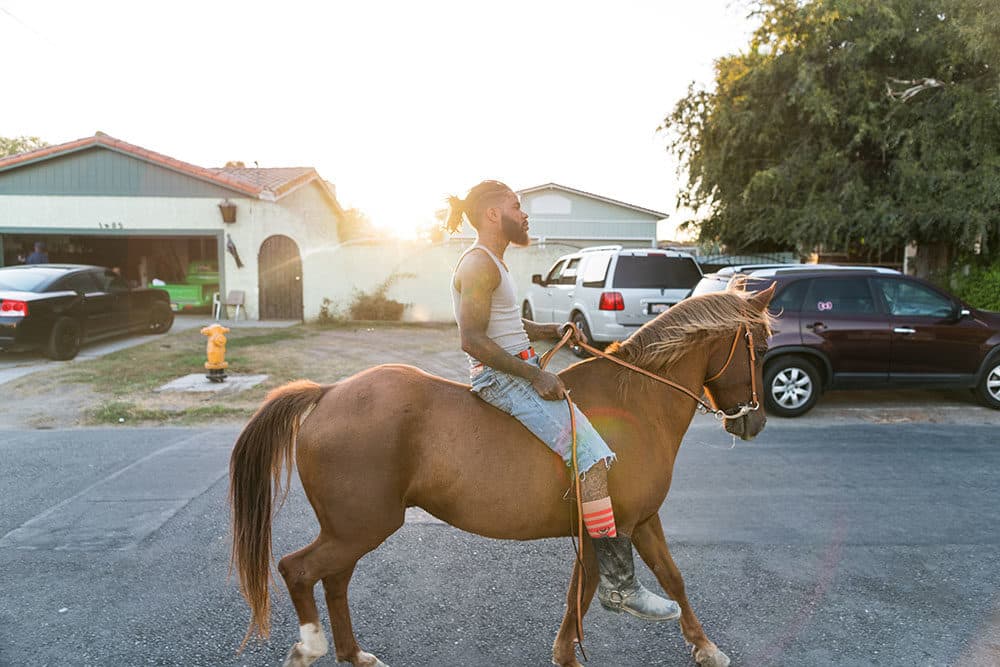
“It is a story about the fear of displacement and what happens to these sacred spaces, what happens to the places and communities of color,” Thompson-Hernández says. “What's happening here is that this community is changing demographically. And I think these are the last black cowboys.”
And this isn’t just happening in Compton. Other black urban cowboy communities across the country, such as in Baltimore and Philadelphia, are similarly facing this fear of displacement, Thompson-Hernández says.
At its core, this is a story about the places people go to find redemption and healing, he says. For the Compton Cowboys, that place is a horse ranch in the middle of their city.
“I think this is a story that everyone can really see themselves in because we all need places to go and redeem ourselves from past experiences, from traumatic experiences,” he says. “And for me personally, you know, this ranch became somewhere that I went to as well.”
Cristina Kim produced and edited this story for broadcast with Peter O'Dowd. Samantha Raphelson adapted it for the web.
This segment aired on April 30, 2020.
